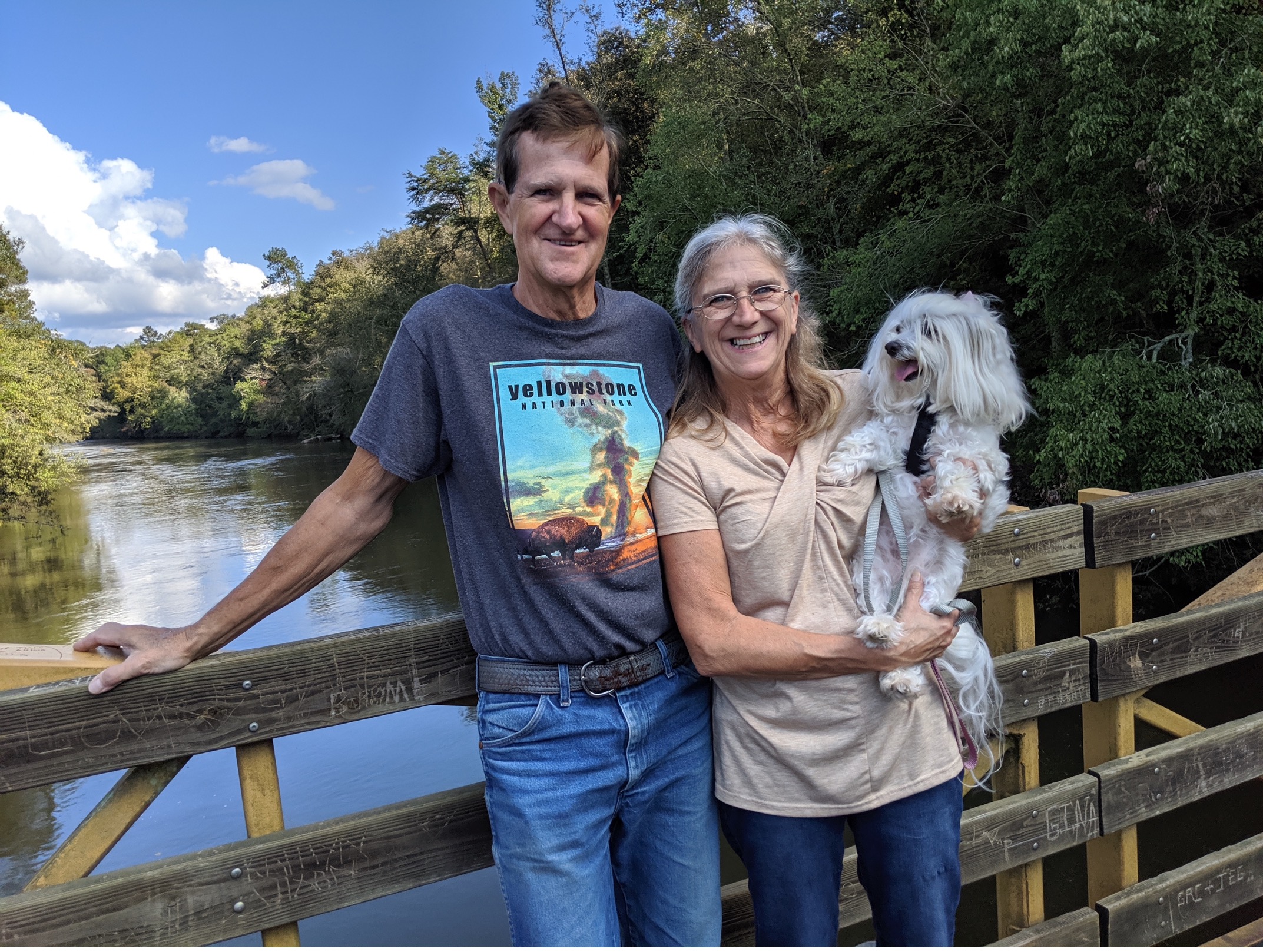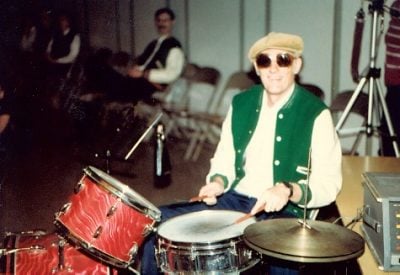Dementia Challenges & Strategies in the Local Community

You're in for a treat! AGE-u-cate is honored to welcome a guest blogger, Laurie Scherrer. Laurie is Programs Director of Dementia Action Alliance (DAA) and is an active member of DAA's Executive Board.
Through her extensive work in supporting initiatives of DAA and her experience living with dementia, Laurie is a strong advocate for quality of life. She was diagnosed with young onset dementia in August of 2013 at the age of 55. Unable to continue a professional career she turned her focus towards helping others through their dementia journey, Laurie and her husband, Roy, work continuously to identify triggers that cause her confusion and they make adjustments to overcome obstacles. Laurie is a Dementia Mentor and is active in many support groups. On her website, dementiadaze.com, Laurie shares her feelings, challenges, symptoms, and adjustments in hopes of encouraging other individuals and families living with dementia to explore ways to live beyond dementia.
Today, Laurie shares with AGE-u-cate's network insight into challenges and strategies for local communities in supporting people living with dementia. Thank you for your continued advocacy, Laurie!
Dementia Challenges & Strategies in the Local Community
Living with dementia has many challenges. To me the biggest challenges stem from:
- The lack of understanding within my social and business communities
- No longer being able to multitask
- Getting confused following directions
- A high sensitivity to over-stimulation (such as noise, flashing lights and filtering conversations)
These challenges often make it difficult to maintain a household and enjoy social activities, but these symptoms are also difficult for others to understand.
In general people seem to be prepared for memory lapses, but not the other symptoms that come with dementia.
My husband, Roy and I don’t accept the notion that I CAN’T do things anymore. Instead, we try to review each challenge, figure out what the obstacle is and find a way to adjust to make it happen.
First, we looked at some general challenges and came up with strategies:
Obstacle #1: Loosing Keys
As with most women, I rarely leave the house without my purse. After deciding the best place to keep my keys was with my purse, we attached a hook onto my purse that holds my keys. They never leave my purse. With the hook, I can easily move the keys from one purse to another. The hook and key holder are long enough that while my purse is on my arm, I can reach the door to lock it, sturdy enough that it is not going to fall off and small enough that I can slip it into my purse so only the end shows and it doesn’t get in my way. So the answer is: to never lose your keys, keep them attached to your purse! Sorry men, I don’t have an answer for you.
Obstacle #2: Loosing my purse and cart in the grocery store
After a few times of loosing my purse and walking off with someone else’s cart, we came up with a simple solution to keep my cart and purse together. We purchased a Large Stroller Hook. I hook my purse and shopping bags to the handle of my cart so I can easily keep track of both. So far it works great – I’m the only one in the store with my purse hanging on a cart!
Obstacle #3: Forgetting my “mission”
Too often I would arrive at a store or bank and forget why I was there – what was my mission? Solution: We installed Anylist.com on my phone. Along with other things, it tracks my grocery list and “To Do” list all in one spot.
Obstacle #4: Sensitivity to noise
As with many people with dementia, I have lost my ability to filter sound. Voices become amplified as though I am in a cave. When shopping, or in a restaurant, noise is everywhere: baby crying, kids running, people talking, carts banging – - chaos!
EARPLUGS – DON’T LEAVE HOME WITHOUT THEM! Earplugs have become a staple in our cars and in my purse.
Second, to help me maintain some of my independence and yet stay safe, we began to share one-on-one conversations with management of some of the local businesses I would frequent.
Together we discussed my challenges and in some cases how the business could make it easier for me. Although others helped, I want to give a shout out to the three businesses I used the most that really demonstrated true community service: a grocery store, a hair salon and a restaurant.
Grocery Store Challenges and tips:
When items get moved to a different aisle or when I am purchasing something not normally on my list this can impact my confusion and cognitive functioning. Which can lead to sensory and cognitive overload.
Moved the creamer – - track it down - - Whew! Finally done - - Go to the checkout – - - Five people in line - - Noise intensifying – - coming from every angle - - beep, beep of the scanner, loud speaker announcements, multiple conversations . . . Can’t think, sounds like everyone is speaking through a boom box. Earplugs in, but still on overload!
The one little outing that others take for granted, is often a tremendous undertaking. Because it creates such mental fatigue, I am usually unable to focus on anything else the rest of the day.
Grocery Shopping Tips:
- Shopping needs to be done before 10:00 in the morning Monday through Thursday when the store is less crowded.
- Always shop the same store – it reduces the confusion of finding things and becomes a familiar environment with familiar faces.
- Seek help! Ask when you can’t find something.
GREAT COMMUNITY SERVICE: After speaking with the manager of our Giant Food Store in Gilbertsville, PA the manager and employees were WONDERFUL!
One day after being told an item was in aisle nine, I spent 20 minutes searching and finally left my cart and went home in tears. Now at Giant, when I ask where to find an item, rather than saying an aisle number - they take me to it! Wow! That really helps to stay more focused on completing my task.
When they see me standing in a line, rather than making me try to filter the scanner beeps, they open a register and lead me through.
When they changed the store around, they sent me a list of where to find my usual items!
They made it possible for me to maintain some independence in grocery shopping.
Hair Salon Challenges and Tips:
A cacophony of chaos and sounds (blow dryers, heels on hard wood floor, razors, multiple conversations and people scurrying around in many directions) made it challenging to get my hair done until I met Diane.
Diane’s mom had dementia and she understood the challenges of a salon and did her best to accommodate my needs. She came into the salon after normal hours when it was just us, kept the radio turned off, and wore rubber sole shoes. Plus she made me feel beautiful! Sadly, she moved to another state and her replacement was not as generous.
Restaurant Challenges and Tips:
Noise overload! Dishes clinging, multiple conversation, too many decisions on the menu, waitress rattles off specials so fast that I only recall special number one, and add to it TVs going which add to the visual and audio overload!
Restaurant Tips:
- Always have earplugs
- Ask to be seated away from the kitchen and away from tv’s (if possible). Try for a quiet corner – even if you have to wait to be seated.
- Inform your waitress you may need help. I have a card I give to each hostess and waitress that reads: “Please be patient, I have dementia. * I may repeat questions * Forget what you told me * Take longer to make decisions.” This has helped explain my “agitation” many times.
- Narrow the choices. Looking at a large menu gets me frustrated. I can’t absorb all the choices and make a decision. We often review the menu on-line before going out and then Roy helps me with suggestions like “Do you want chicken, beef or seafood? OK – well you like Scampi and fettuccini. Which do you feel like?”
- Dine at less popular times. We try to go out between 3:00 – 4:00. Generally you have less noise & more attentive staff.
After reading my card, the waitress handed me a written “Specials Menu” and asked frequently if I had questions and inquired if that special would interest me. Rather than stand over us the waitress knelt down to our eye level and pointed out drinks and sides so I could find them.
When I needed the ladies room, she walked me to AND from the location – making sure I made it safely back to my table.
These actions helped me have an enjoyable experience in an environment that often leads to a melt down of confusion from over-stimulation.
Conclusion:
To me, these three businesses are a reflection of what true community efforts should look like.
Businesses are not going to automatically understand the needs of people living with dementia, or physical challenges, or the challenges of some elderly . They need to be taught by the experts – me and you – the people living the experience.
Community understanding of cognitive and physical challenges is important. It needs to start with those of us who know the challenges and how the community can help. Share your voice – and shape your community!


